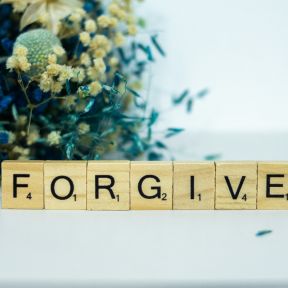
Self-Hatred
Self-hatred encompasses continual feelings of inadequacy, guilt, and low self-esteem. People may constantly compare themselves to others, perceive only the negative and ignore the positive, and believe that they will never be "good enough." But every single person has worth and value—and the ability to cultivate self-love.

Feelings of self-loathing are deeply painful, but exploring those emotions is the first step toward healing. If you're struggling with hateful thoughts, reflect on what sparked them. Did you make a mistake at work? Did a recent dinner with a friend lead you to feel envious? Identifying these triggers can allow you to diffuse them the next time they arise.
Beyond immediate triggers, the roots of self-hatred can often be traced to environmental circumstances such as hypercritical parenting, or personality traits such as perfectionism. Once feelings of worthlessness take hold, they can be difficult to release; the stories that form around early experiences can become deeply entrenched. But there are still many ways for people to confront self-criticism and develop a strong sense of self.
The pain of self-hatred can be due to different reasons: Abusive parenting or childhood trauma can prevent the development of self-esteem. Perfectionism can lead people to believe that they’ll never be good enough and dissatisfaction with a particular trait, such as intelligence or appearance, can lead to doubt and inadequacy. A grave error, such as a betrayal or crime, can also fuel self-loathing.
People who hate themselves assign disproportionate weight to their faults and overlook their strengths. This can be fueled by a time in which they developed a harmful narrative about themselves. That can be difficult to invalidate, but treating others with kindness—which will hopefully lead to treating oneself with kindness—is one place to start.
People who struggle with self-loathing feel inadequate, but others often don’t see them the same way. It can be instructive to explain that they may not have accurate self-perception, because shortcomings are familiar to them. Recognizing that limitation can help internalize positive feedback from others and show that the discrepancy could be filled by positivity rather than negativity.
It can be painful to recognize the gap between what your life is and what you want your life to be. Self-criticism depletes the motivation to change, so begin by developing self-acceptance. Reflect on the values and traits that are important to you. Nurture those characteristics, and try to value who you are, not what you do.

Cultivating self-esteem is the antidote to self-loathing. Learning how to silence one’s inner critic can limit the negative thoughts that come to mind and the comparisons made to others.
Practicing self-compassion and learning how to forgive others and oneself for past mistakes, whether serious or trivial, are key approaches as well.
Seeking support from a loved one or mental health professional is also an important part of the process.
People may condemn themselves to years of self-loathing, especially after committing a terrible act. Self-forgiveness offers a path to release that burden. This process can begin by forgiving others and progress to recognizing that you, too, are more than your behavior and that you can learn to love yourself.
You need to become aware of a problem to change it, so begin by noticing critical self-talk and challenge those thoughts. Explore the narrative you have about yourself and why it might be flawed. Avoiding comparing yourself to others and practicing forgiveness can also help cultivate self-esteem.
If you’ve done everything you can to fix the mistake, but you continue to beat yourself up, try a technique called “self-distancing.” Switch your internal dialogue from first person to third person and consider how an outsider would see the situation. This can help cultivate self-compassion and silence your inner critic.

Everyone experiences occasional moments of frustration, shame, and regret. Self-loathing becomes a concern when feelings of inadequacy become pervasive and debilitating. This situation may be a warning sign of depression. Seeking help, whether through a crisis hotline in the short term or through therapy in the long term, can help overcome self-hatred and depression.
Self-loathing on its own is not a disorder, but it is one of several possible symptoms of depression. The DSM-5 articulates this symptom as “feelings of worthlessness or excessive or inappropriate guilt (which may be delusional) nearly every day (not merely self-reproach or guilt about being sick).”
Please know that there are people who want to help you, who will be able to understand the terrifying and painful feelings you are experiencing, and who have counseled and helped many people who feel as you do right now. For immediate help, call the National Suicide Prevention Lifeline, 1-800-273-TALK, or text TALK to 741741 for the Crisis Text Line. To find a therapist, visit the Psychology Today Therapy Directory. Mental health professionals can develop a personalized safety plan and help you begin to heal.
Broaching the subject of suicide can feel daunting, awkward, or entirely impossible. But initiating a conversation is the best thing you can do. You may want to read about depression beforehand and come with resources such as the Suicide Prevention Lifeline (1-800-273-TALK). Ask how the person feels about seeking help to understand the barriers that may stand in their way.














